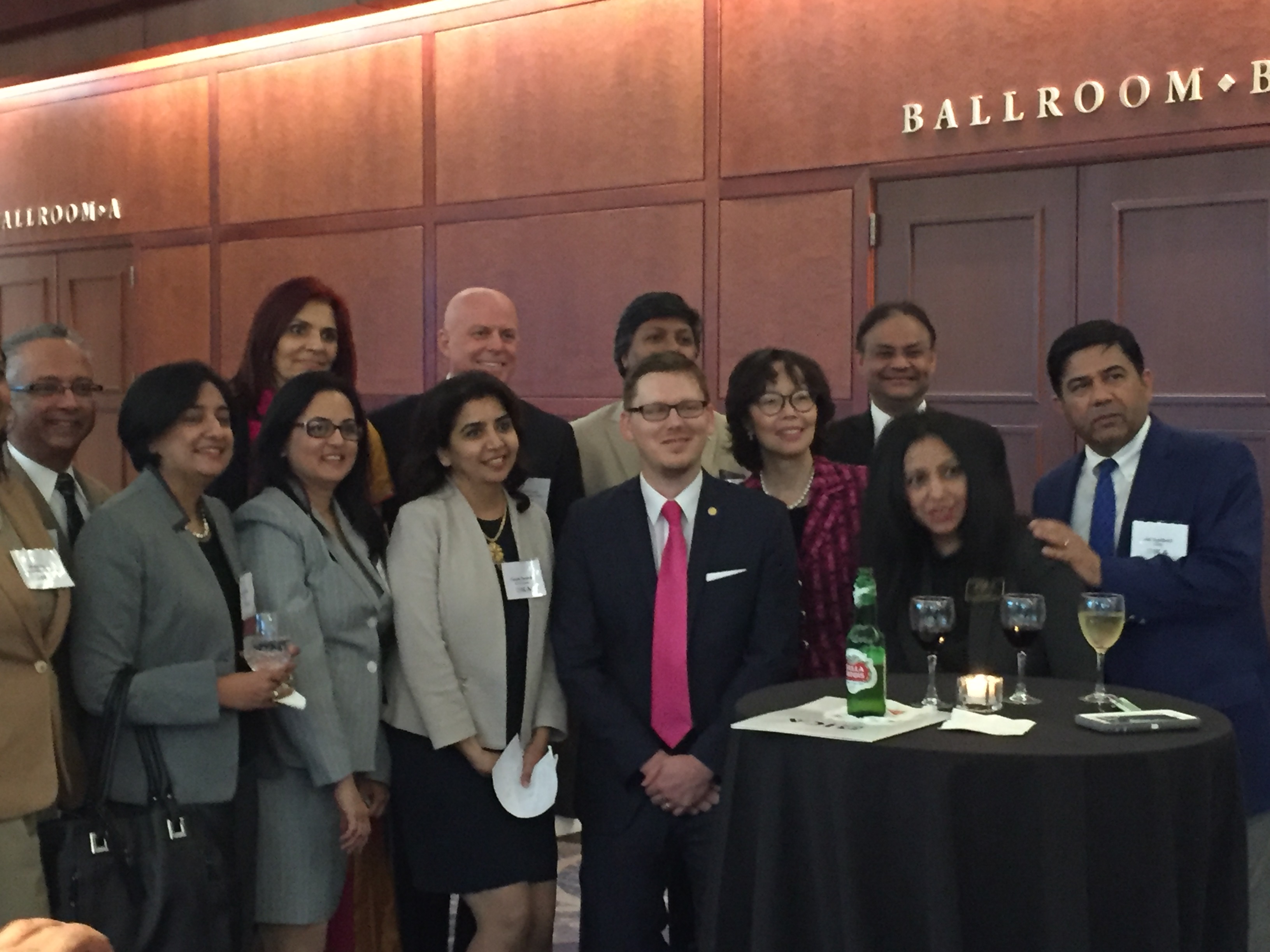Kennesaw State University’s India China America Institute hosted its second annual summit that discussed economic and culture issues and included the consul general of India.
The event, nicknamed the “Chindia Summit,” was held at the Cobb Galleria Centre March 11. The event held four panels, with the Indian Consul General Nagesh Singh presenting on the last panel to discuss diaspora in these countries.
“Indian Consul General Nagesh Singh is a dynamic leader who represents India very well,” said Pamila Dembla, the director of the KSU ICA Institute, which is housed within KSU’s Division of Global Affairs. “He has traveled and held responsible positions in many parts of the world before his posting in Atlanta. He has a world view that would be hard to replicate in India.”
Singh was on the panel discussion of Chindia diaspora. He gave a few reasons for the difference in the perception of India now versus just 20 years ago. He listed the three phases of Indian immigration as mercantilism, colonialism and economic opportunities. Labor and slavery were byproducts of colonizing the world, but it did help spread Indian culture, according to Singh.
“India is always a heavy-weight contributor,” said Singh. Since the 1990s, India has had a boom of immigrants in the world and despite the social complexities, they have had a big change in their economy and culture. Unskilled workers make up 60 percent of the Indian population, and yet there is a stigma that India has many technology leaders and doctors.
“Much more has to be done in terms of diaspora and, even within the past nine months, India has changed,” Singh said.
Henry Wu, executive director of the Asian Investment Consortium, spoke about his worry of education and its failures that affected the communication of the three superpowers.
“The younger generation needs to learn more soft skills like communicating and how to negotiate contracts, which are more than just economic theories of a textbook, Wu said. “I’m worried about the lack of involvement and education in the U.S. universities.”
Susan Allen, president of the U.S. Pacific and Asian-American Chamber of Commerce, shared her opinion of Chinese-American influence within America.
Allen discussed the history of China as one of the earliest groups to immigrate to the U.S. The intercontinental railroad workforce consisted of mainly Chinese workers, yet the photograph of the completion of the railroad in 1869 does not depict a single Chinese man or woman. Groups started to make towns where similar culture and people could find a safe haven, like Chinatown in California.
“The older generation of China is self-driven and have the concept of ‘Don’t lose face,'” Allen said. “Do not shame the family, village, town and country.”
Li Zheng, founder and president of Techtop Industries Inc., focused on the integration of all three nations’ culture and economy.
“If any culture is to survive, they cannot be static,” Zheng said. “Even my family was migrant in China.”
There were different forms of Chinese culture and religion he experienced through these moves.
Dembla, the ICA Institute’s director, believes that Atlanta is an ideal city in which to host the summit.
“The ICA Institute holds Atlanta and KSU as its home because Atlanta is one of the major cities in southeast United States and is a home to consulates of many countries,” Dembla said. “As the summit matures, we hope to host it in India and China as well.”
The ICA Institute is considering various themes for next year.
“As we grow, we would like to extend the summit to include different topics of interest, such as art, literature, movies, health, wellness, food, political and economical issues,” Dembla said. “Creative ways of marketing the program to invite different segments of society would be another area to work on.”




